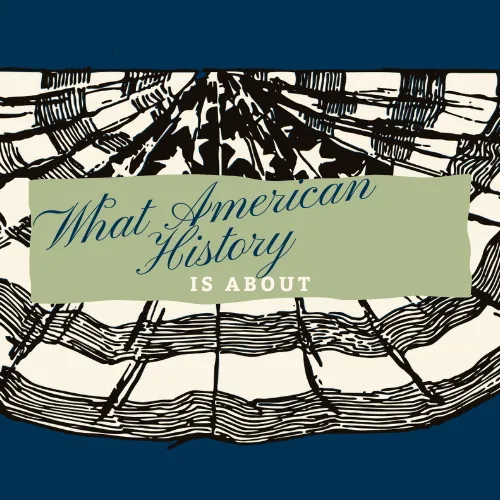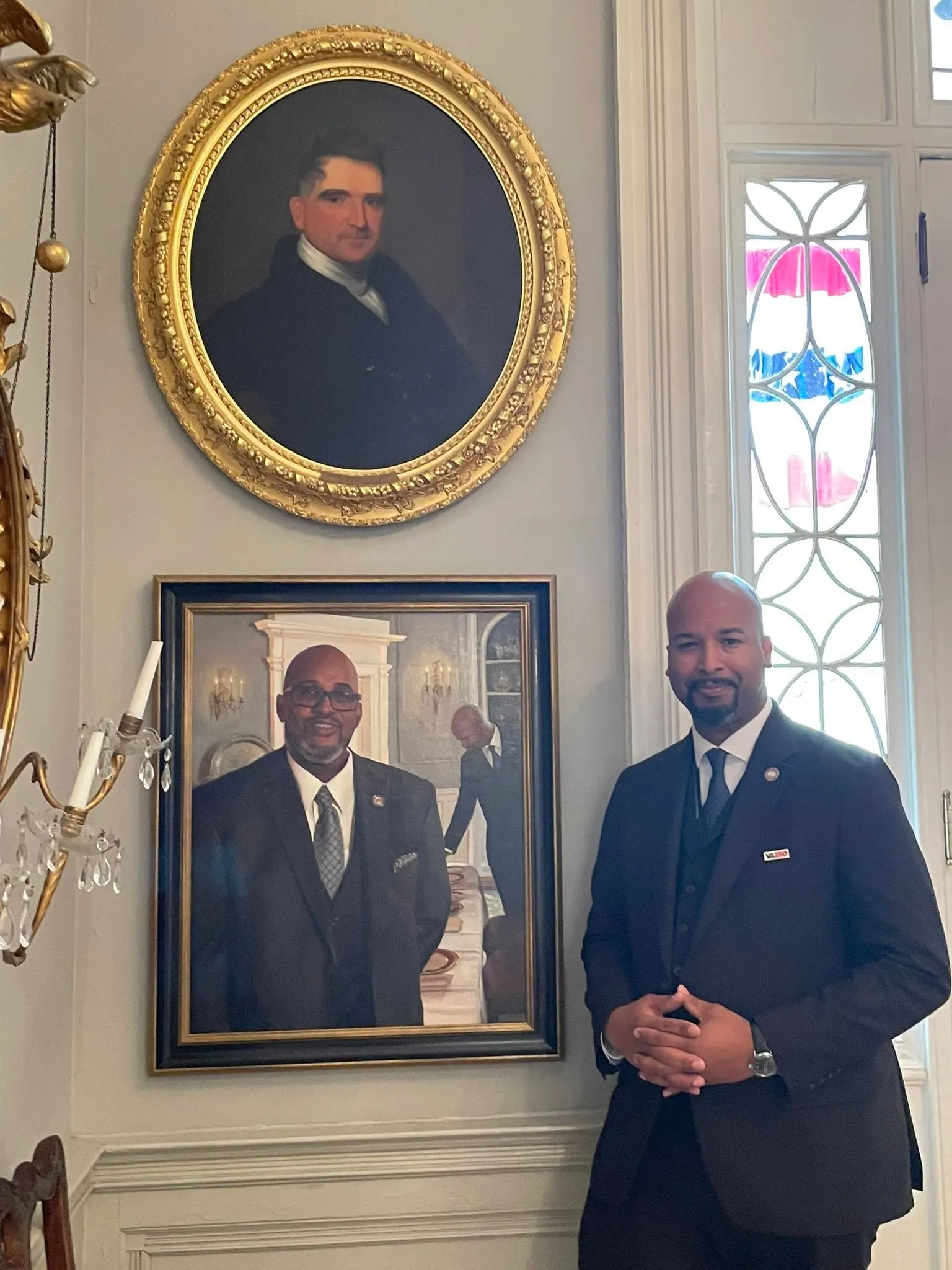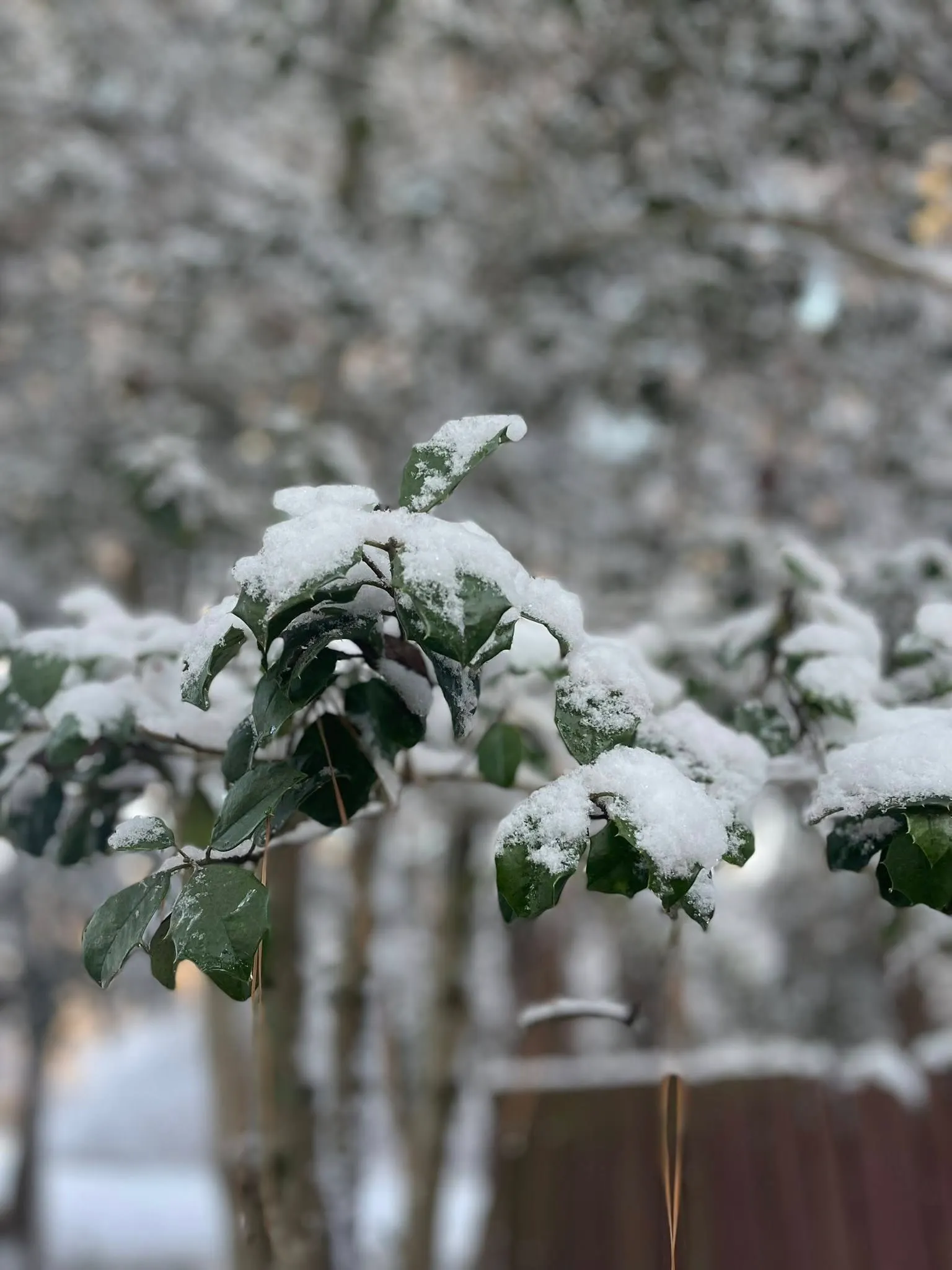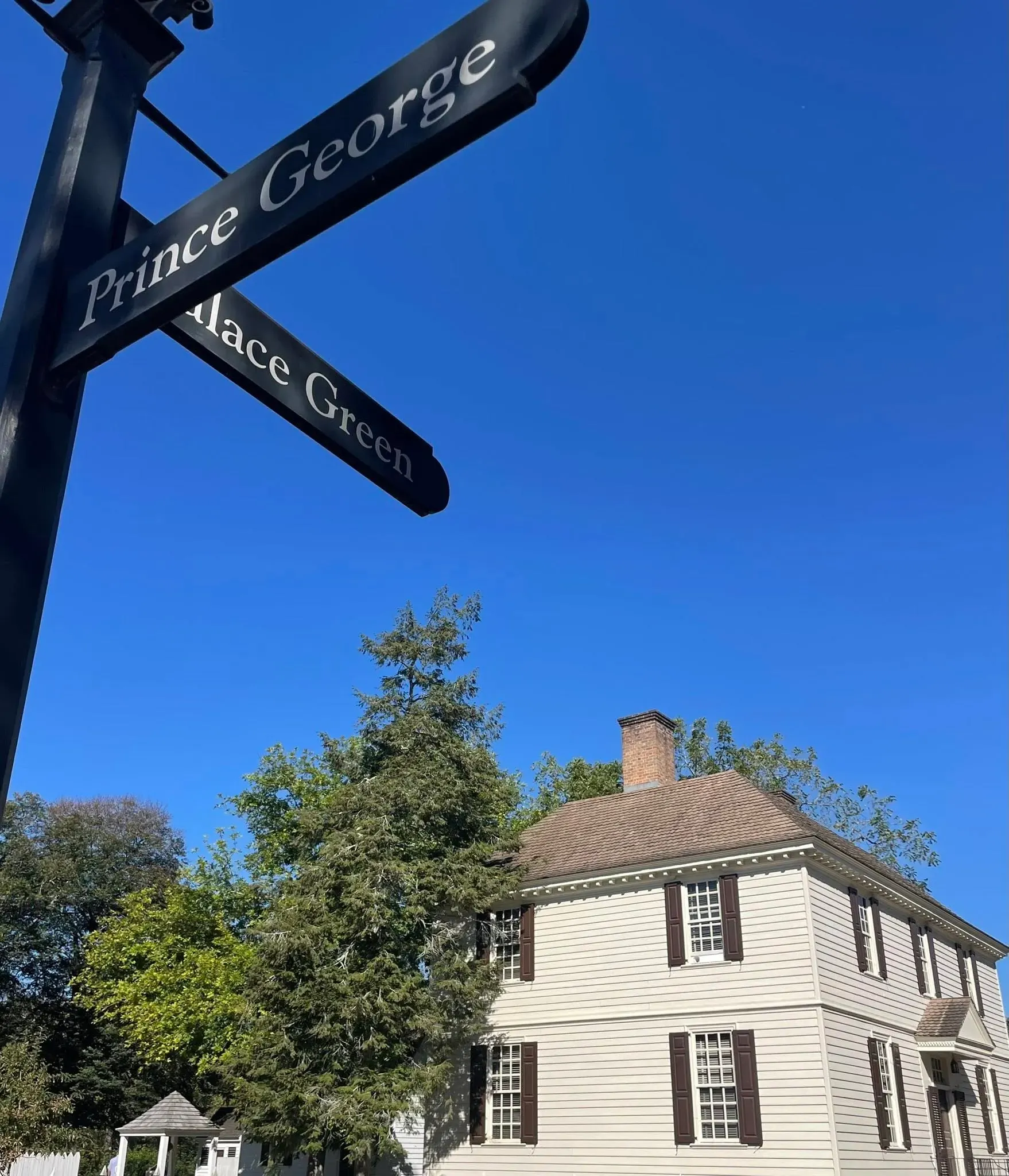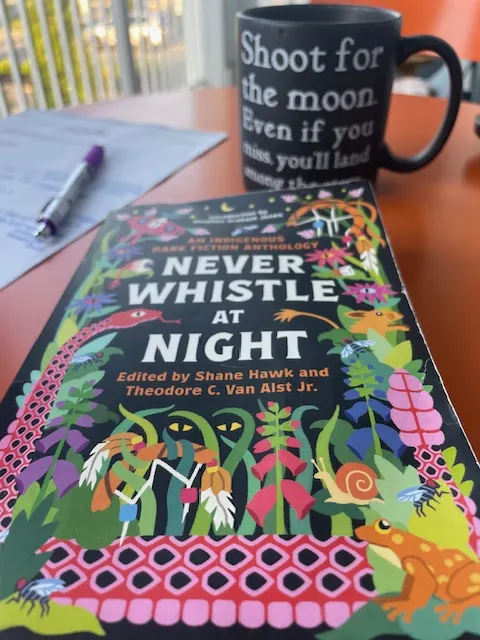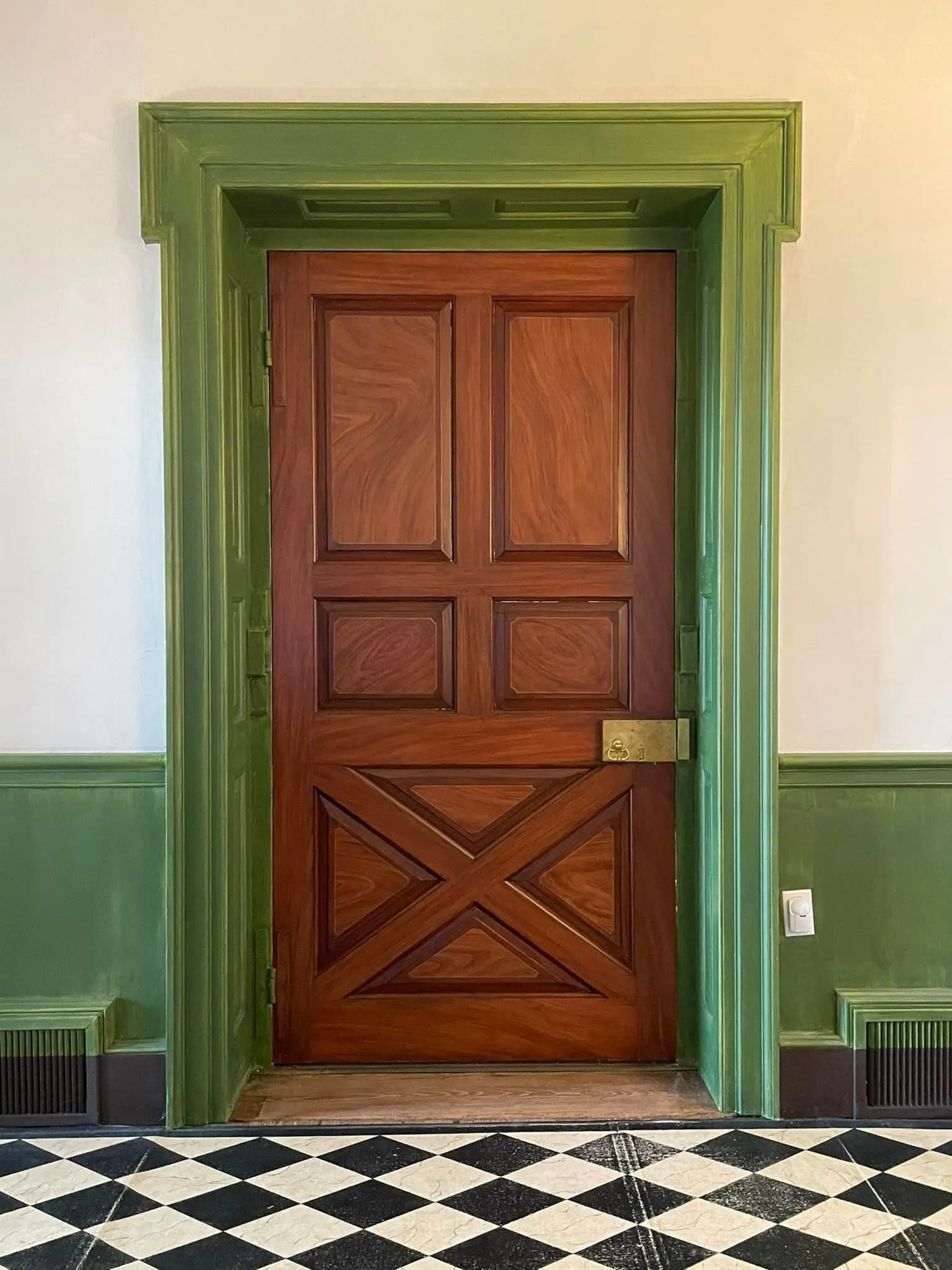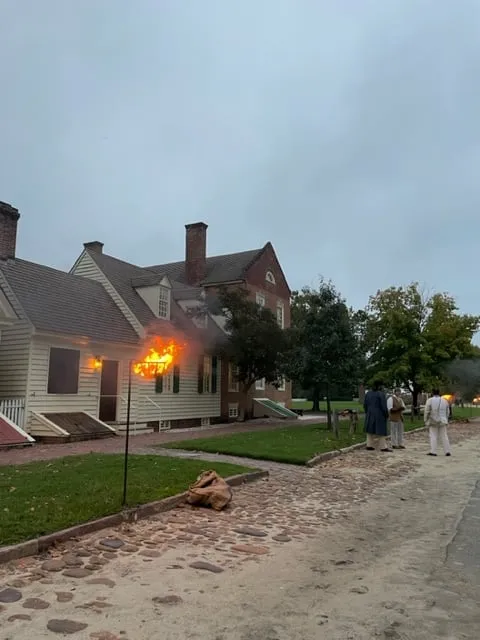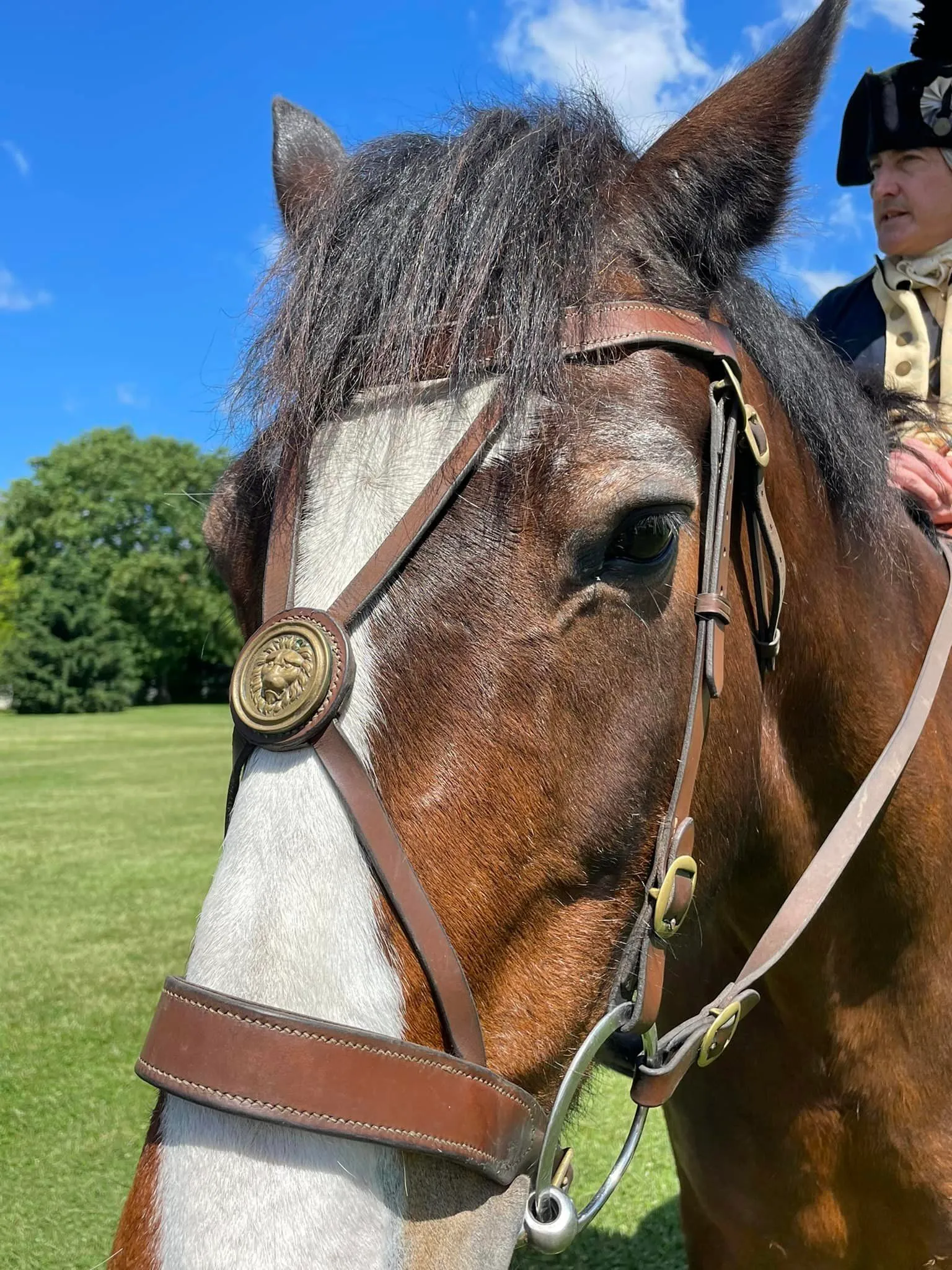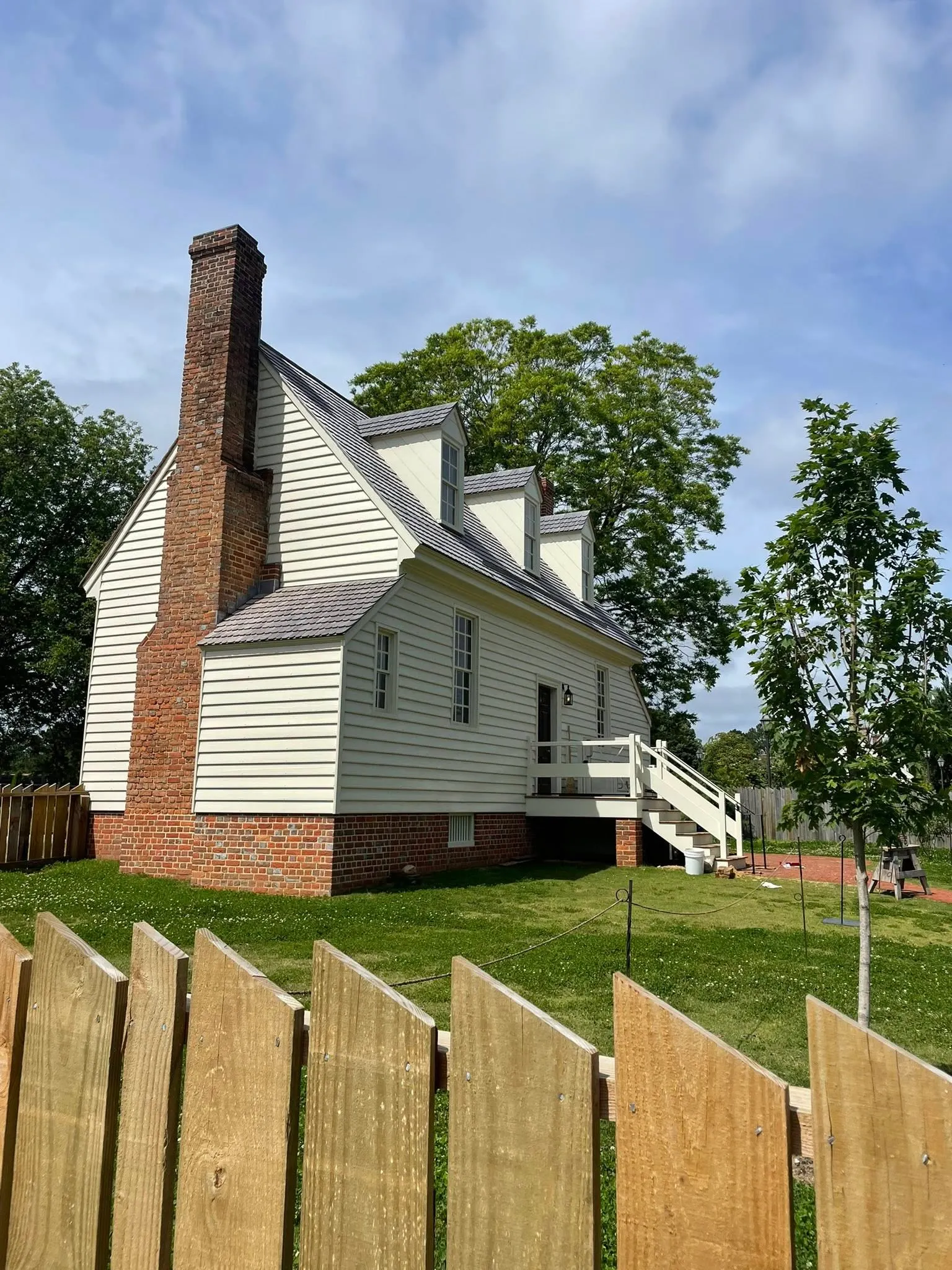The 4th Grade Trip that Kept Silversmithing and Its Role in American History Alive: Remember April 11th by Honoring George Cloyed, Master Silversmith
Stories that matter most.
History isn’t just major events. People shaped our history. People who participated in those major events have backstories. And sometimes people who shape history may not be linked to a “major event.” However, a moment in time might be MAJOR.
I love learning about these moments and the impact they have on us. Walking into Colonial Williamsburg from the parking lot, I learned of one such moment from Master Silversmith George Cloyed.
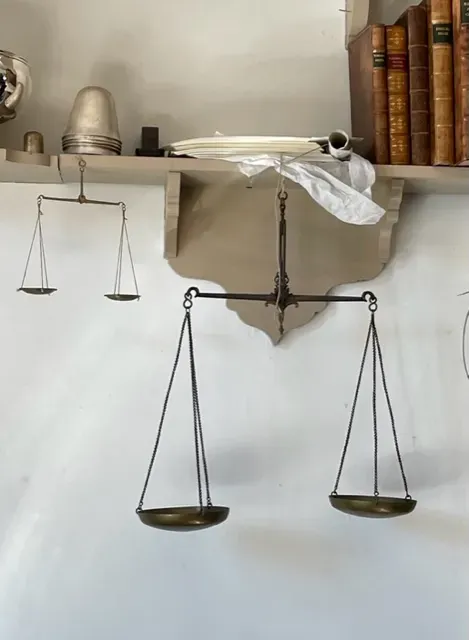
Scales in the Silversmith shop, Colonial Williamsburg
An older sister who wanted to teach paved the way and Mrs. Tate cemented the deal.
Mr. Cloyed shared his sister’s passion for teaching with us while on his short walk to work from the parking lot. She started teaching young George when he was only 2 years old, and she was 10. With an 8-year age difference, she took it upon herself as the older sibling to ensure young George had access to all the exciting things she was learning in school!
One of these learnings: Longfellow’s poem about Paul Revere. And Mr. Cloyed had it memorized; in fact, he loved it so much, his 4th grade teacher, Mrs. Tate, knew. She was certain to bring him and his class into the silversmith’s shop on a visit to Williamsburg in 1965.
Click here to read more detail about Longfellow’s famous poem.
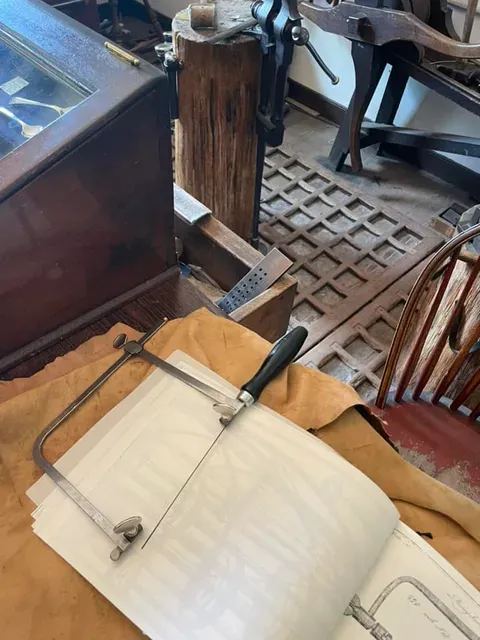
Grate and tools in Colonial Williamsburg's silversmith shop.
Every day is a holiday. Every day history is made, and lives are impacted.
Add April 11th to your list of days to remember because history was definitely made that day in 1965.
When Mr. Cloyed’s 4th grade class visited historic Colonial Williamsburg, currently the largest living history museum in the world, the silversmith trade was assured to be preserved for at least one more generation. And now, with the fantastic apprentices and journeymen he’s trained, long into the future.
One rainy day field trip is forever imprinted onto the memory of Master Cloyed. And we benefit from his passion to preserve this trade in a way that is unique, special, and importantly: what American history is all about.
What the silversmith does and teaches, almost daily, in Colonial Williamsburg.
Preserving 18th century methods of the silversmith.
By recreating 18th century pieces from illustrations, artifacts in the Colonial Williamsburg collection, and written primary sources, the trades of Williamsburg keep history alive. Quite literally.
The silversmith is no exception. The polishing tools, the fire they use for forging, the grate on the floor to collect silver “dust” – all of it means, we step into history. We see, hear, smell, and overwhelmingly experience the work environment of an 18th century silversmith.
RELATED: Click here to learn about primary sources.
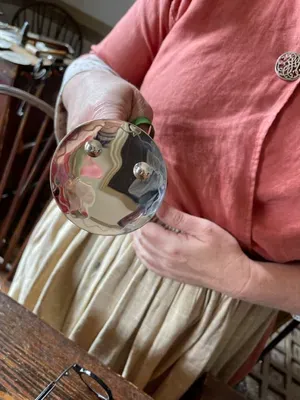
Silversmith journeyman showing polished silver.
Teaching us history: people, places, and objects.
Here's an example: Someone close to me was inspired by a mace being worked on by the silversmiths. Enough to share the information with our Patrick Henry, Richard Schumann, who he initially discussed Peyton Randolph’s actual mace with.
Why the interest? We attended the VA 250 event I discussed recently in this blog post.
Learn more about the original mace by clicking here.
Inspiring new research.
All the work done in the silversmith’s shop, each and every day, inspires questions, research, and ideas! Conversations in the shop led me to ask other trades about Diderot, look for silver objects in the Colonial Williamsburg's art museums and even dig around in the Rockefeller Library.
The Rockefeller is where I discovered a 1952 report compiled by Mary A. Stephenson and learned about a silversmith named Robert Bruce, who left the employ of James Craig, owner of Williamsburg’s Golden Ball. In fact, Craig's shop was on the site Master Cloyed currently occupies with his team!
Mr. Bruce advertised he was setting up his own business right across the street! (and yes, it was common to advertise your comings-and-goings as a businessperson)
These are the stories that motivate my passion for history- the stories of the humans making up our history.
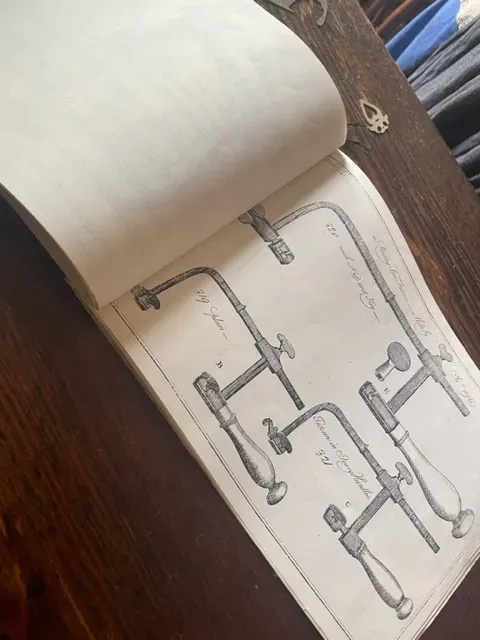
Illustrations used for reference in the silversmith shop.
Preservation of trades.
Do you have access to 18th century (or earlier!) trades? Do you practice an historic trade? I want to hear about it! Share it in the comments or feel free to connect with me over email by subscribing to my blog and being in my contact list. (and adding me to yours!)
Importantly: visit Master Cloyed if you visit Colonial Williamsburg, bring your children or grandchildren… and of course, inspire and encourage them to preserve history through trades.
Closing it out with words from history.
This time: an aging Thomas Jefferson encouraging relocation of silversmiths into Charlottesville. Excerpts of the opening and closing below; click here for the full letter, with citations and notes.
Thomas Jefferson to William Lee, 6 June 1817
To William Lee
Monticello June 6. 17.
Dear Sir
The National Intelligencer informs us there is a numerous party of Swiss stocking weavers arrived at Washington, and mr Barnes of Georgetown, now here, tells me he thinks they are under your patronage. believing it for their interest to distribute themselves to good posts in the country, I take the liberty of stating that I think there is no better stand for one or two of them than the town of Charlottesville, 3 miles distant from me.
(letter continues)
a silversmith, if any among them, would find great employment at the same place & would be particularly well recieved. we have there a fine watchmaker; a Swiss from Neufchatel, finding much more work than he can do, and taking in money as fast as he can earn it. he finds himself peculiarly happy and delighted with the country & his own situation. if you can encourage good subjects from among these emigrants you will ensure their success, accomodate this vicinage and do an acceptable favor to your friend & servt
Th: Jefferson
